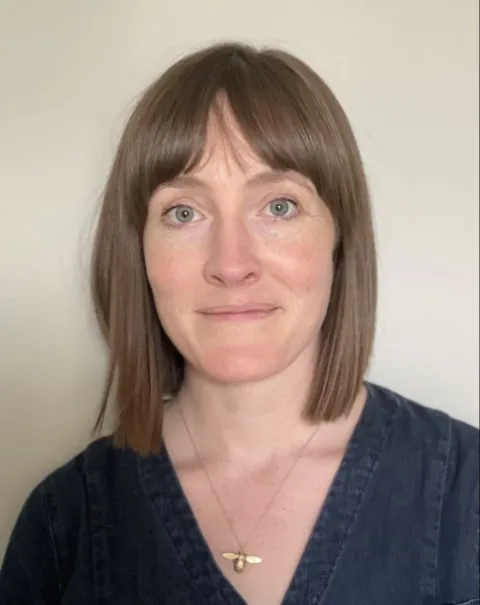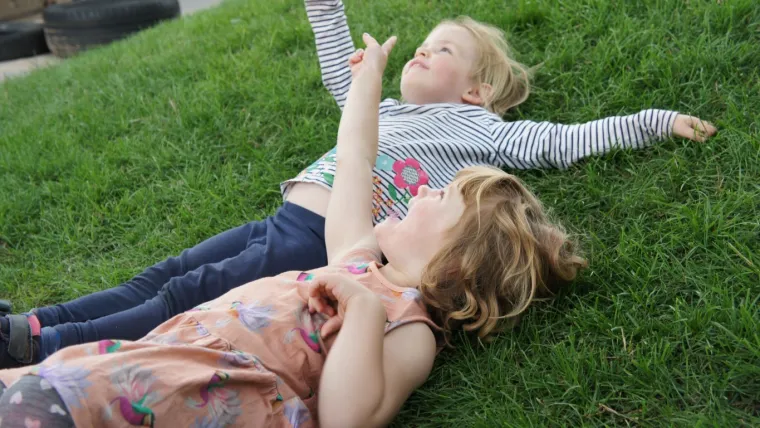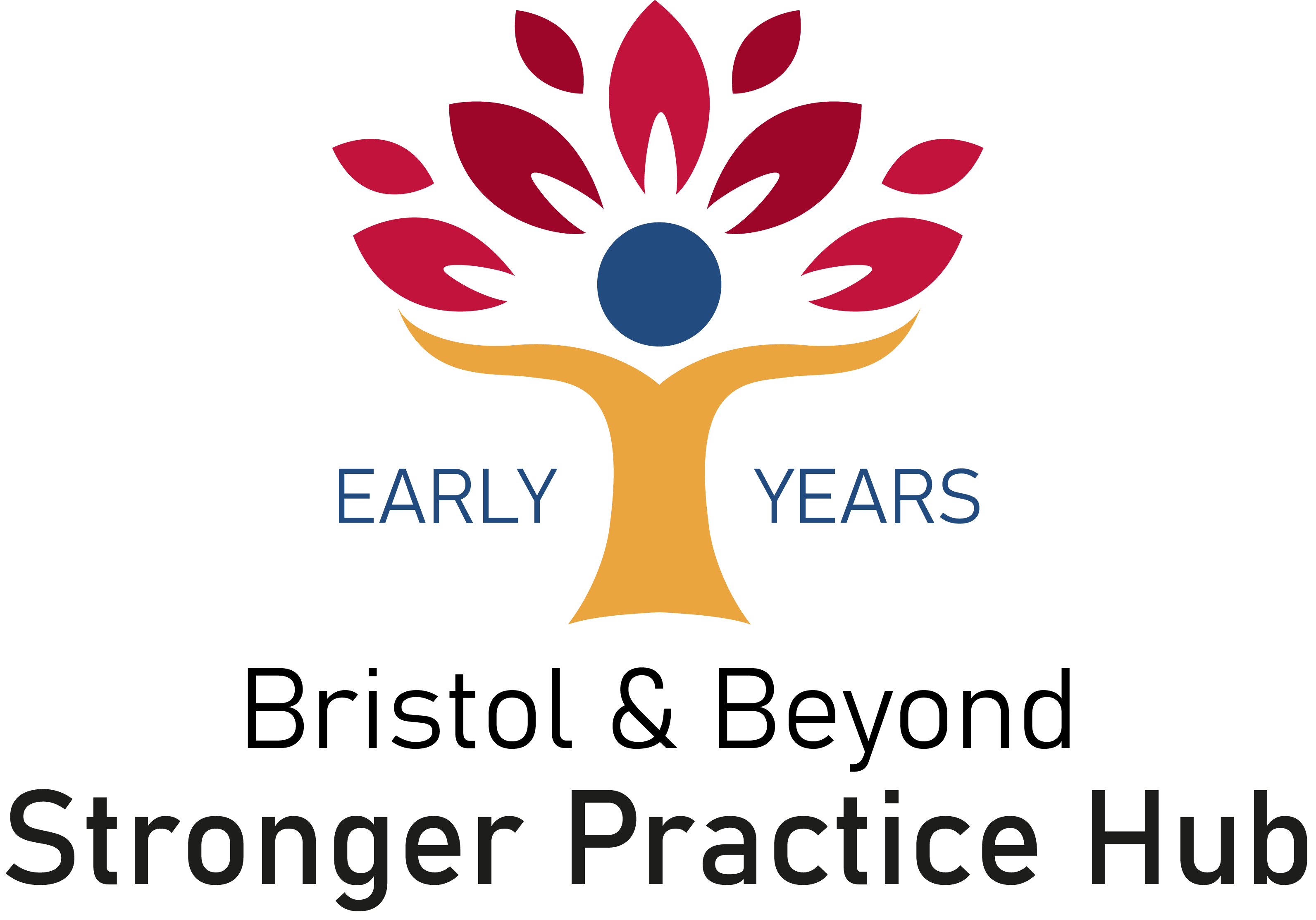Erin Blessitt is an Early Years Teacher who manages a PVI setting in Bristol. She works as a Local Specialist Leader on the PSED and Emotional Wellbeing team, and supports settings as part of the DfE Covid Recovery project. She has a Masters in Early Childhood Studies, and is parent to twins, born a year before the start of the Covid-19 pandemic.

Erin reflects on a CPD session by Dr Suzanne Zeedyk in which she held space for us to think deeply about Covid, how it might have changed our children and what we now need to prioritise to centre connection, repair and relationships in our practice. It links to the ‘Teaching and modelling managing emotions and feelings’ on the EEF Evidence Store.
Dr. Suzanne Zeedyk’s recent session for Bristol Early Years Teaching Hub was, at points, upsetting, unsettling and difficult to listen to, and it was some of the most important CPD I have attended.
Suzanne is a developmental psychologist and research scientist who became passionate about disseminating the science of connection to the wider public after realising how few people had access to information about it.
During the session in March, she held space for us to think deeply about Covid, how it might have changed our children and what we now need to prioritise to centre connection, repair and relationships in our practice. Suzanne held our hands as we rode a rollercoaster of emotion, leaving us feeling slightly stunned but hopeful and empowered too.
When good intentions leave gaps
For most of us who worked through Covid, there has been no time to stop and reflect on the enormity of what we went through. We rocketed from a pandemic into a cost of living and recruitment crisis, with some EYFS and Ofsted reforms along the way. Suzanne pressed pause and encouraged us to articulate our concerns. Are children different now? Did Covid change childhood? Did Covid change children’s biology?
The science of connection would suggest that, yes, it did.
It’s a scary idea to sit with, primarily because in the unprecedented circumstances of the pandemic, we were all doing the best we could. We were often forced to work to procedures that felt at odds with our ethics, and to acknowledge that many of the actions we took were not optimal for children sits in direct contrast to why most of us work in the sector in the first place, to give children the best possible start.
Alongside the discomfort that came from realising children have been impacted came a feeling of liberation; it was validating to hear an expert in the field affirm our experiences and challenges over the past few years.
One of Suzanne’s core messages was to not let our feelings of discomfort stand in the way of putting in place what is best for children – our curiosity about what might be different and ways in which we might need to change is the bridge between the uncomfortable past and the hopeful future.

Connection, relationships, teddy bears and tigers
Babies are born already connected, connection shapes brain development, and societies suffer when babies and adults don’t feel connected. Persistent unmet connection needs have a physiological impact on development – it is all too easy to imagine that when parents and practitioners are under a constant level of stress and alert, they might be less responsive to the infant’s bids for connection.
"Early mental health and development relies on secure, responsive parent-infant relationships" National Children’s Bureau, 2020
Suzanne used the analogy of being in a teddy bear state when our nervous system is regulated – we are calm, social, responsive and balanced. When we feel threatened or stressed, we go into a sabre-tooth tiger state, on the alert and ready to fight, flight, freeze or flop.
Both of these states are necessary, but the problem arises when we spend too long in tiger mode, and can’t get back to a teddy bear state.
Early mental health and development relies on secure, responsive parent-infant relationships (National Children’s Bureau, 2020), and the additional stressors presented by Covid will have piled on top of the adversities already faced by many families – leaving parents in a constant state of fearful alert and less able to respond to their children’s needs.
"Evidence shows that child and practitioner interactions support children’s ability to regulate their emotions, and these interactions have even more impact for disadvantaged children" Education Endowment Foundation, 2023
What can we do? Hopeful possibilities
Suzanne had five joyfully simple recommendations for repairing and moving forward. To her suggestions, I have added some brief ideas about how these might be incorporated into practice.
- Lots and lots of play – get children outside, give them time and space to play. Let them be, and be alongside them to support if they need extra practice at being with their peer group. Observe children in your care carefully; what are they drawn to? What are they playing? Can you give them more uninterrupted and unscheduled time to play?
- Pay attention to partings – have separation practices that are informed by relationship and attachment theory. Allow and value transitional objects. Let parents into your setting so they are familiar with where their children spend their time. Revisit your settling-in procedure. Does it give enough time for children and caregivers to feel settled and comfortable in partings?
- Name feelings – talk about feelings with children all the time. Evidence shows that child and practitioner interactions support children’s ability to regulate their emotions, and these interactions have even more impact on disadvantaged children (Education Endowment Foundation, 2023). Look at books about feelings with children, and think together about times when you have felt happy, excited, nervous, sad or angry. The more we talk about feelings, the more we normalise them and reduce shame.
- Enhance interoception, the brain’s perception of the body’s state (Robson, 2021) – help children to be in touch with their bodies. Encourage them to notice signals from their bodies, and help them to interpret what those signals might be telling them. One of the easiest times to do this can be at mealtimes, put your hand on your tummy and model wondering about how hungry, full or thirsty you’re feeling. Invite children to wonder with you.
- Laugh – we don’t laugh when we’re in high-alert, sabre-tooth tiger mode. When we laugh, our bodies and minds are relaxed. When we laugh together, we are connected. Some of my favourite moments of laughter come from reading stories and books. Have you got funny books out in your book corner?
To Suzanne’s list, I would add two extra points that feel especially relevant to our current context.
- Look after your parents and primary caregivers – so much support for parents vanished during the pandemic, who cared for the caregivers when Covid arrived? Spend some time reflecting on how you make parents and carers feel part of your setting community. Show them they are valued and that you’re all on the same team in wanting the best for children. So many narratives around childhood post-Covid present children as lacking, and we must be vocal in separating the children themselves from their experiences. It was the systems and structures around families that were lacking, not the children themselves. It is part of our role to share our deep respect and hope for children with their families.
- Look after yourselves – it’s one thing to talk about leaning into discomfort, and another thing to actually do it. You matter – give yourself what you need.
This post-Covid curiosity and repair can feel like a heavy weight to bear, and I encourage you to give yourself some time to reflect on your own experiences of it. Reflect, feel the discomfort and then leave any guilt, shame or regret at the door. We all did the best we could at the time – we can feel these hard feelings and move forward into new possibilities.
We know what children and families need, and we can use our time now to prioritise connection, relationships and give all of us a chance to repair. It can be tempting to put Covid in a box, in a neat before and after – but we must be curious and continue reflecting so that we stay motivated to give children what they need now. I will finish with one of Suzanne’s comments which has stayed with me: there is no other sector who is going to think more about this, it’s you.
It’s you.
